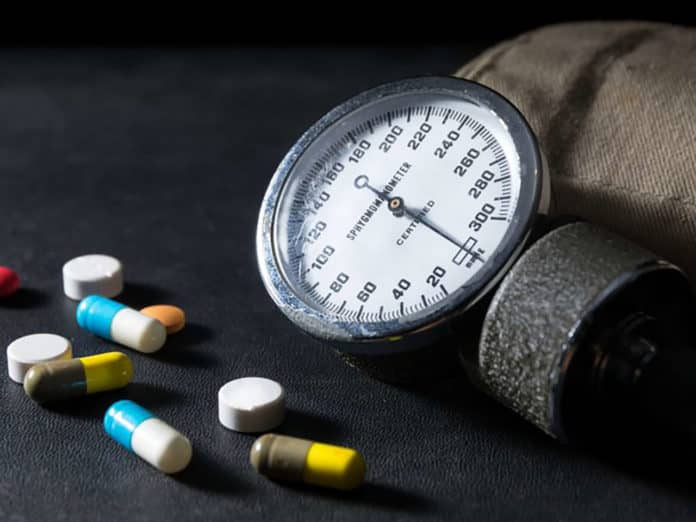A new study by the University of Bristol suggests that lowering high blood pressure could reduce the risk of developing type 2 diabetes later. For this, blood pressure drugs play a vital role.
Various studies have found the relation between high blood pressure and the risk of cardiovascular disease. For this concern, doctors prescribe blood pressure-lowering drugs. However, whether these drugs could also prevent people from developing type-2-diabetes remains unknown.
To determine its protective effects from developing diabetes, scientists conducted a study on over 145,000 people from 19 randomized clinical trials worldwide. They found a five mmHg reduction in systolic blood pressure reduced the risk of type 2 diabetes by 11 percent.
Scientists used a genetic data analysis approach called Mendelian randomization to confirm the risk in reduction. This approach uses naturally occurring genetic differences to randomly divide participants into groups, mimicking the effects of running a clinical trial.
People with genetically influenced lower blood pressure levels had a 12 percent lower risk of type 2 diabetes than those without the genetic associations.
Scientists then determined the effects of five major blood pressure drugs from 22 clinical trials compared to a placebo. They found angiotensin-converting enzyme (ACE) inhibitors and angiotensin receptor-II blockers (ARBs) had the strongest protective effect, both reducing a person’s relative risk of developing diabetes by 16 percent.
Other types of blood pressure-lowering drugs were not found to be protective. They found that calcium channel blockers had no significant effect on diabetes risk. At the same time, beta-blockers and thiazide diuretics increased the risk despite their known beneficial effects to prevent heart attacks and strokes.
Professor Kazem Rahimi, a lead researcher of the study at the University of Oxford and consultant cardiologist, said: “Current clinical guidelines do not provide clear recommendations on lowering blood pressure as a strategy to prevent type 2 diabetes. Our research provides clear evidence that giving ACE inhibitors or ARBs, which are widely available and affordable worldwide, to patients at high risk could curb the growing burden of type 2 diabetes.”
Professor Sir Nilesh Samani, Medical Director at the British Heart Foundation, said: “Diabetes and high blood pressure are two important and growing problems which increase a person’s chance of developing an array of other serious health complications, including heart attacks and strokes. This research shows that the two are inter-connected and that lowering blood pressure could be a powerful way to reduce the risk of developing diabetes.”
“It also shows that different commonly used drugs for lowering blood pressure have very different effects on risk of diabetes. Doctors should therefore consider the patient’s risk of developing diabetes when they are choosing an anti-hypertensive drug to lower their blood pressure.”
Professor George Davey Smith, Director of the MRC Integrative Epidemiology Unit at the University of Bristol, said: “The general agreement between the findings from the meta-analysis of randomized controlled trials and genetic Mendelian randomization evidence strengthens the conclusions that can be drawn from this study since any bias that could be introduced into one analysis would not influence the findings of the other. Triangulating evidence in this way is likely to become a common feature of medical research over the coming years.”
Journal Reference:
- G. Davey Smith, N. Samani and K.Rahimi et al. Blood pressure lowering and risk of new-onset type 2 diabetes: an individual-level meta-analysis of 145,000 randomized participants. DOI: 10.1016/S0140-6736(21)01920-6
